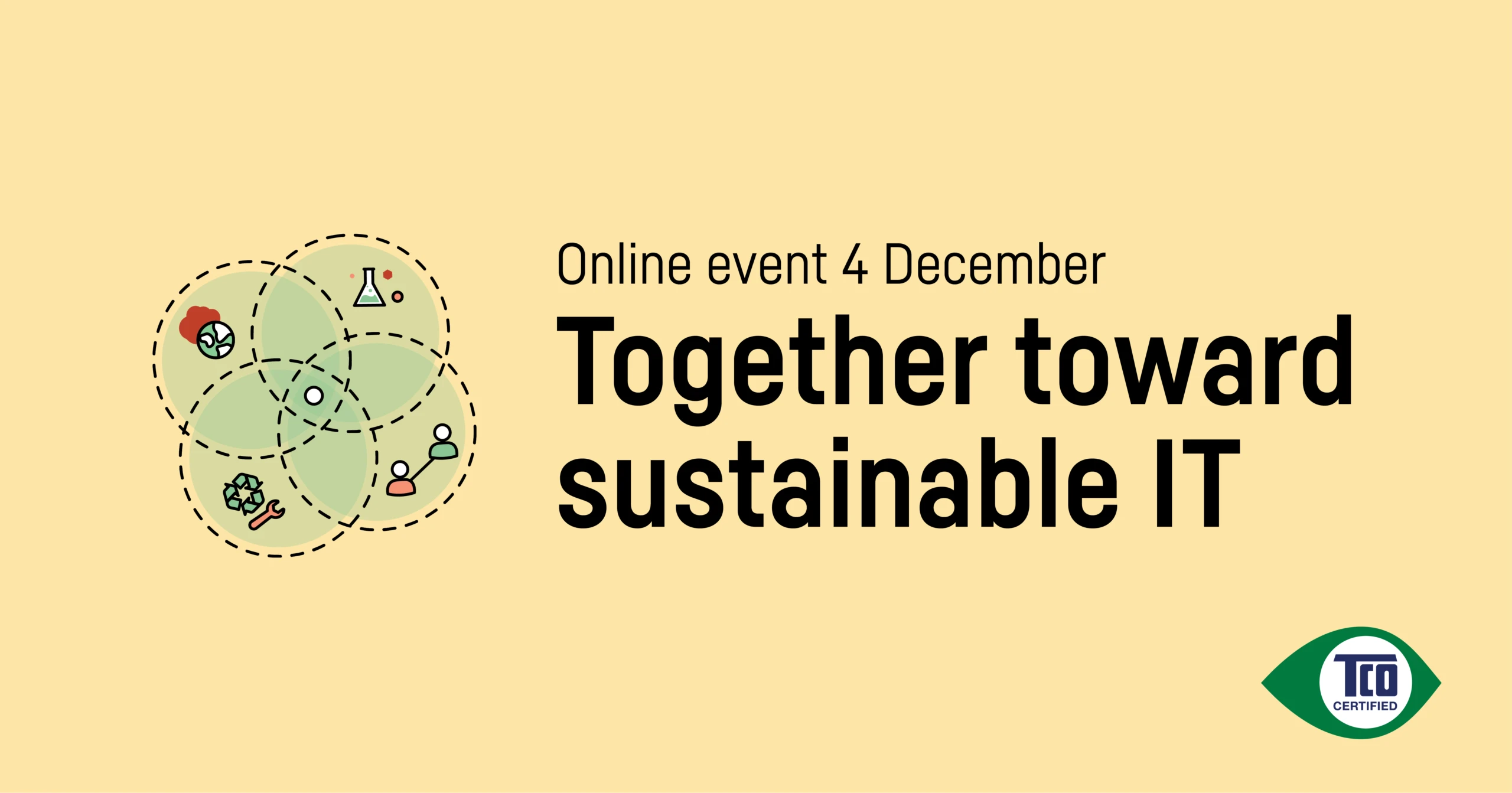We have talked to Parul Sharma, CEO of The Academy for Human Rights in Business, Sweden, about the status of human and worker rights in the supply chain. Parul will also be the moderator of the digital launch event of TCO Certified, generation 9 on December 1 – where she is going to share her insights on social responsibility issues.
What can you tell us about the status of human and worker rights in the supply chain?
The world’s supply chains are being severely affected by the global COVID-19 pandemic. Moreover, the threat to public health, the economic and social disruption threatens the long-term livelihoods of millions of workers. Mostly vulnerable to the worst impacts of the pandemic are the millions of workers lower down the supply chain, often women and the primary caregivers in their families and already marginalized communities. These workers are integral to the global economy, and a large part of the hidden workforce of global production and already face poverty wages, dangerous and unsafe working conditions, and without social protections, mostly.
Migrant workers in supply chains also face unique risks, as a result of inadequate and crowded living conditions, harsh containment measures, and discrimination. This includes workers in supply chains across sectors but has clearly been identified within electronics and IT. Such risks and impacts have been documented in the mining sector in Latin America as well as in electronics manufacturing in China (including the alert on the forced labor of the Uyghurs), Hong Kong, India, Indonesia, Malaysia, Thailand, Vietnam, Czech Republic, Italy, Brazil, and Mexico), according to and by numerous human rights watchdogs.
Due to worldwide restrictions and lockdowns, it has been close to impossible to verify and mitigate the negative impacts on the rights of workers. In my advisory role, I prepare companies and governmental agencies who procure products from high-risk markets to build even stricter auditing models during and post-covid, especially within the following areas: compensation, collective bargaining agreements, and cancellations during the pandemic, for instance, cancellations of wage increase and severance payments, health and safety measures with a focus on lack of protective equipment, lack of social distancing measures but also a verification of various government documents related to health and safety and generally a license to operate as fraudulent and fake documents have been produced during the pandemic to keep business running.
In fact, all licenses and certificates connected to workers’ rights produced during the pandemic should be verified and authenticated. For instance, a regular canteen approval for 150 workers during the pandemic can indicate a fraudulent transaction. It is important to be aware and alert when it comes to the possibility of increased fraud to speed up and smoothen business but at the cost of labor standards and rights.
What distinguishes social responsibility issues in the IT supply chain from other supply networks?
Supply chain transparency and traceability are relevant for any industry, however, within IT and electronics the issues of traceability, especially the areas which concern the extractives industry and metals, have been a matter of immense challenge for years. The issue of lack of traceability has been at the core of the IT and electronics industry and has thus resulted in numerous crucial multi-stakeholder initiatives and legislations, which is positive. Another aspect that makes this industry stand out is the overall production cycle of electronic equipment, from extractives to production to e-waste and recycling, areas which might seem environmental by nature but have an immense impact on social standards and livelihood of millions of people whose air, land and water is profoundly disturbed.
The impact of e-waste pollution on people is still an unprioritized area and needs far more focus. Environmental contamination and health impacts of electronic wastes go beyond e-waste recycling facilities, as the pollutants’ environmental transport and transformation processes allow them to affect other communities, such as children, farmlands, and food chains.
Furthermore, The e-waste recycling sector in developing countries is largely unregulated, using archaic methods to recover valuable materials from e-waste components. Manual disassembly of e-wastes increases the release of hazardous substances to the environment, such as when fluorescent lamps are broken resulting in the release of mercury vapor.
Many ILO reports show how the recycling process is carried out using bare hands, without the use of masks, cleaning, crushing, or heating the parts. Many workers also sited being cramped in unventilated rooms with inadequate lighting and no clean drinking water or toilets. Many of the workers complain of eye irritation, breathing problems, and constant headaches.
I always refer to the electronics industry when students want to dig deeper into the inter-connections of sustainable development, and the linkages between environmental and social rights.

Gabriella Mellstrand is the Global Marketing & Communications Director at TCO Development. She has a lifelong interest in sustainability and the environment. Gabriella is also a foodie, running a social media account where she shares a lot of tips on local restaurants and different dishes.




